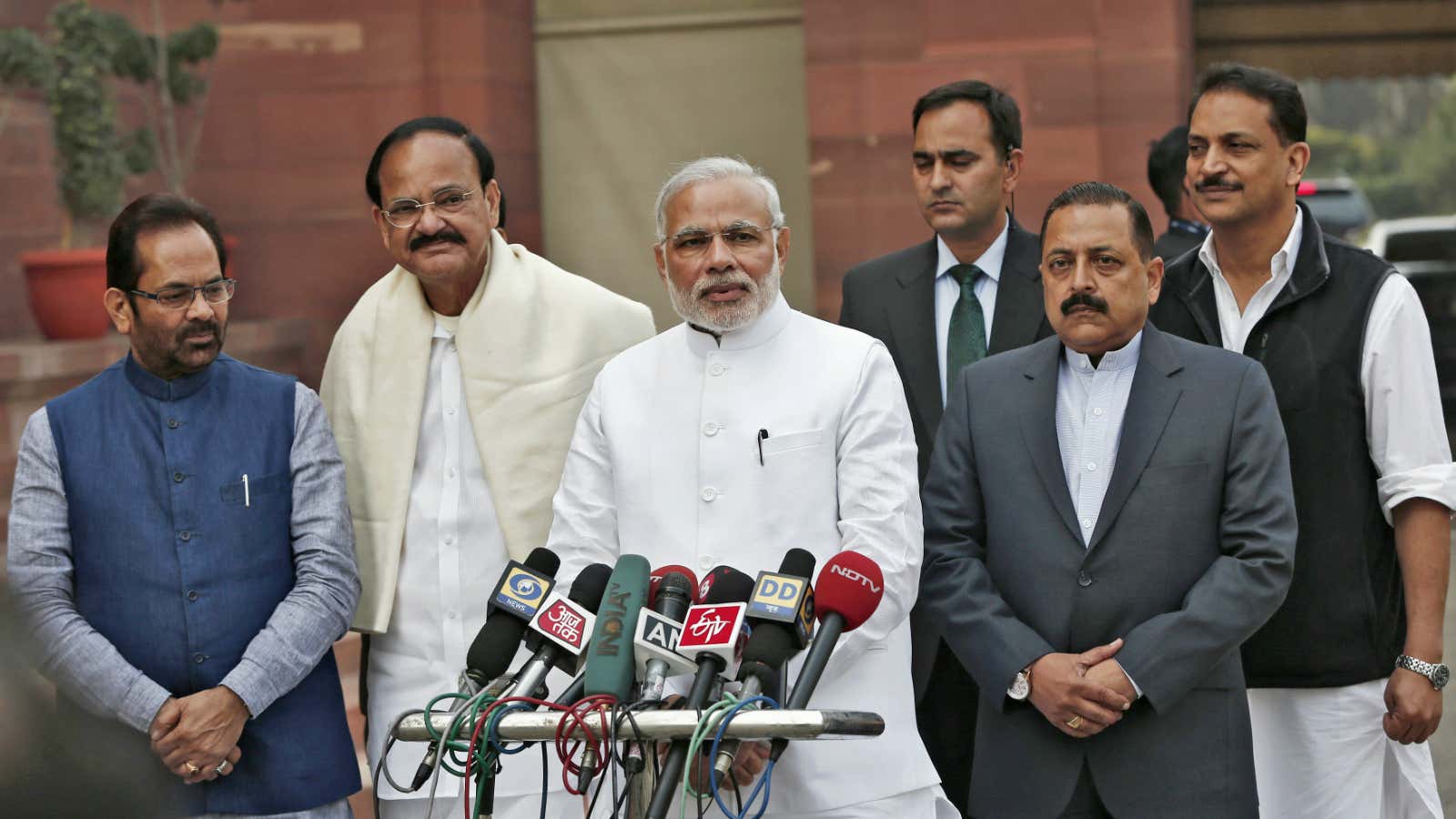The winter session of the Indian parliament starts today (Nov. 26)—and there’s a lot on the line for prime minister Narendra Modi. The legislative agenda for the session includes over 30 bills, which are either pending or slated to be introduced.
The previous session of the parliament was decidedly a damp squid. Many big reforms that investors were keen on, including the goods and services tax (GST), did not make it through.
The globe-trotting prime minister has attempted to cajole investors—both domestic and international—by talking up improved economic growth numbers, but investors and global credit rating agencies are still waiting for him to push through big bang reforms.
In a timely research report on Nov. 25, credit rating agency, Moody’s Investor Services, said that the “investment environment is unlikely to pick up without the key reforms amidst weak global growth.”
It added:
In 2015, the government tried but failed to enact legislation relating to key reforms—goods and services tax and land acquisition—as it lacks majority in the upper house of the parliament. The government is unlikely to win a majority in the upper house if it keeps losing state elections like it did recently in Delhi and Bihar. Opposition parties are unlikely to allow key reforms to go through.
Over the past week, finance minister Arun Jaitley has reached out to the to opposition parties for building consensus. But, emboldened by the Bharatiya Janata Party’s drubbing in Bihar, the latter are unlikely to yield. Also, prolonged disruptions over concerns about growing religious intolerance in the country aren’t entirely unexpected.
The winter session
The winter session is important because as many as 19 pending bills are going to be presented for consideration, and 14 new bills will be proposed.
The new bills include the Nuclear Safety Regulation Authority Bill, 2015, the Industries (Development and Regulation) Amendment Bill 2015, the Atomic Energy (Amendment Bill) 2015, Real Estate (Regulation and development Bill) and a Child Labour (Prohibition and Regulation) Amendment Bill among others.
During the monsoon session of the parliament—the previously concluded session—the productivity level at the Rajya Sabha was a pitiable 9%, according to PRS Legislative Research, which tracks the functioning of the Indian parliament. In the Lok Sabha though, the productivity level was at about 48%.
Despite these concerns, the Modi government seems convinced that that these reforms will be passed soon. Earlier this week, during his visit to Singapore, Modi said the government is “hopeful to roll out the GST regime in 2016.”
Finance minister Jaitley said that he has spoken to “every Congress (party) leader” on allowing the GST bill to pass. “Most of the parties are supporting the bill. The numbers are with the bill,” Jaitley said. ”I am optimistic about the bill. I think it will get passed.”
May the games begin!
